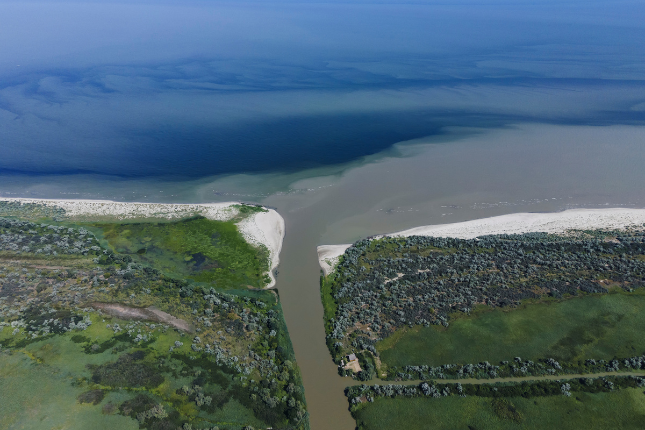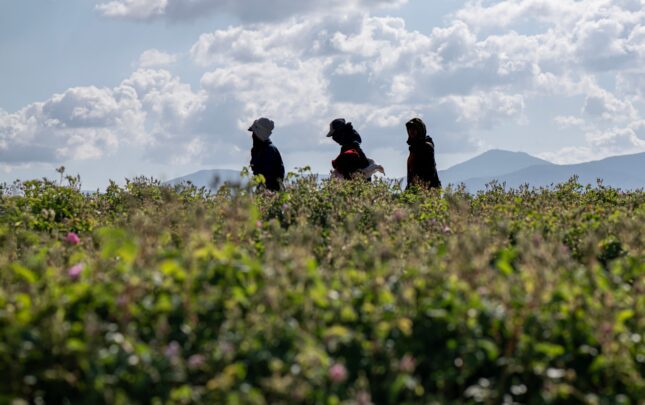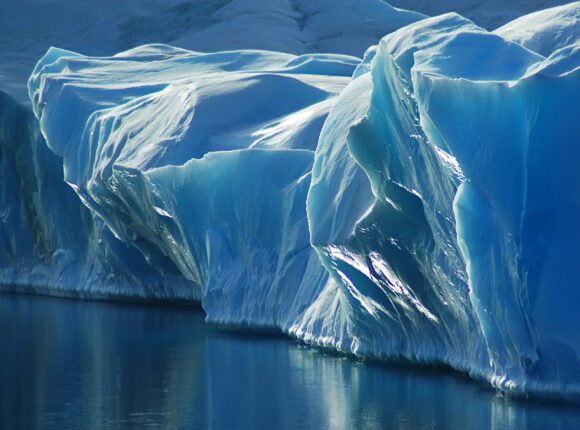-
Harnessing the Benefits of Water Cooperation in an Increasingly Complex World
›
In an era of apparent decline in international cooperation and rising crises, freshwater offers an area in which joint approaches remain absolutely essential—especially since water often transcends the boundaries of nation-states.
Cooperation has long been the preferred approach in dealing with water resources shared with neighboring countries. Since the first—and so far, only—water war in 2550 B.C.E., states have favored cooperative action over conflict to manage, protect, or develop our planet’s 313 transboundary surface water basins and 468 transboundary aquifers.
-
Can Climate-Resilient Agriculture Become an Engine for Syria’s Post-Conflict Recovery?
›
Syria finds itself at a crossroads. Faced with the imminent need to prevent a relapse into renewed short-term insecurity, its government also must start to develop longer-term strategies to support recovery.
Generating peace dividends for Syria’s embattled population requires confronting the ecological threats which currently undermine basic human security across the country. Nowhere do these threats emerge more prominently than in its agricultural sector. Ensuring that this essential sector lives up to its potential as an engine for economic stabilization and peace will require a set of targeted – and climate-sensitive – investments and interventions.
-
ECSP Weekly Watch | February 24 – 28
›
A window into what we’re reading at the Wilson Center’s Environmental Change and Security Program
EU Parliament Suspends Rwandan Critical Mineral Pact Over Links to DRC Conflict (Mongabay)
Rwanda and the DRC both have large reserves of critical minerals essential to the clean energy transition. Yet the EU has voted to suspend a cooperation agreement on mineral extraction in the region after the Rwandan-backed rebel group M23 seized key areas in the DRC’s eastern provinces.
-
Q&A: Julian Higuera-Florez on Harnessing Environmental Peacebuilding in Latin America and the Caribbean
›
Environmental peacebuilding offers a promising framework to address deeply intertwined environmental challenges and conflict dynamics in Latin America and the Caribbean. So why has it not delivered fully on this promise? In an interview with ESCP, Julian Higuera-Florez, a research specialist in climate, peace, and security at the Alliance of Biodiversity and CIAT and CGIAR FOCUS Climate Security, discussed a new policy brief, Environmental Peacebuilding in Latin America and the Caribbean: Bridging Gaps and Harnessing Opportunities, co-authored with the UNDP Latin America and the Caribbean Hub.
-
Facing Up to Climate Risk: Arctic Sea Ice, Tipping Points, and Possible Interventions
›
Global greenhouse gas emissions continue in stark contrast to the emissions reductions needed to limit warming to 1.5 degrees Celsius. Indeed, planetary warming has accelerated so much that many scientists warn that key components of the earth’s system are approaching “tipping points” that will trigger additional climate feedback loops that further fuel and exacerbate climate disruption if they are exceeded.
-
ECSP Weekly Watch | February 3 – 7
›
A window into what we’re reading at the Wilson Center’s Environmental Change and Security Program
Indonesia Considers Paris Agreement Exit Following US Withdrawal (Mongabay)
The US withdrawal from the Paris Agreement has led other countries to reconsider their commitments to the international environmental treaty. In Indonesia, for instance, top officials have questioned whether developing countries should be expected to comply with the agreement as major polluters (including the US) opt out.
-
ECSP Weekly Watch | January 27 – 31
›
A window into what we’re reading at the Wilson Center’s Environmental Change and Security Program
Declining Fish Stocks Threaten Lake Tanganyika Fishing Communities (Al Jazeera)
For the millions who live on the shores of Lake Tanganyika, fishing is a way of life that has sustained generations. However, recent declines in fish production in the world’s largest freshwater lake have devastated Tanzania’s fishermen and prompted questions of the sustainability of the decades-long practice.
-
ECSP Weekly Watch | January 20 — 24
›
A window into what we’re reading at the Wilson Center’s Environmental Change and Security Program
Placing Water at the Heart of Climate Action (Relief Web/Netherlands Red Cross)
It may be true that water is life. But equally true is that roughly 90% of natural disasters—and the havoc they wreak—are water-related. A recognition that these disasters are intensifying in a warming world has led the Netherlands Red Cross to create Water at the Heart of Climate Action (WHCA): a program to tackle the intertwined crises of water-related disasters and climate change.
Showing posts from category adaptation.










